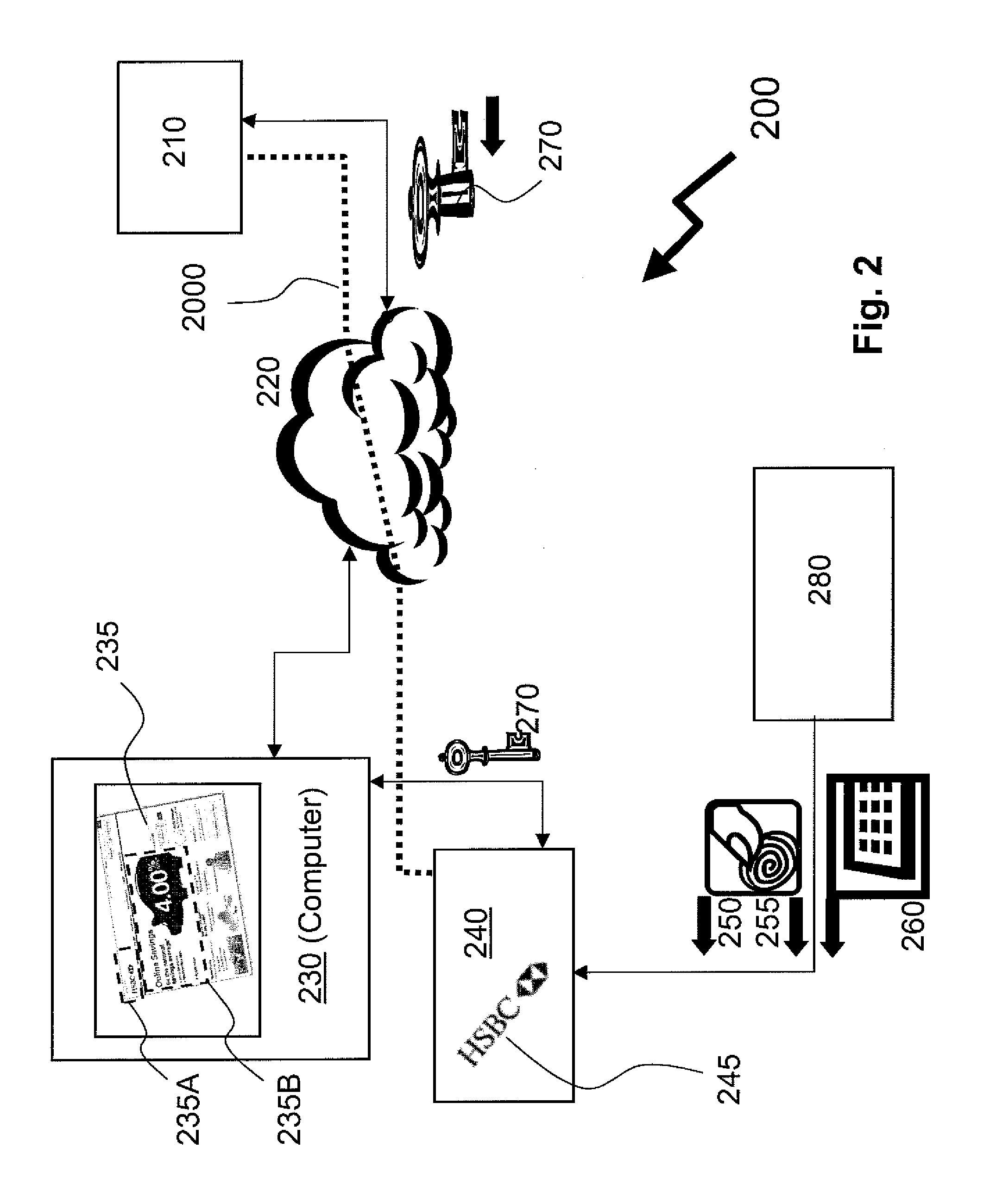Method of Providing Transactions Employing Advertising Based Verification
a verification method and technology of advertising, applied in the field of providing transactions, can solve the problems of inability to many privacy and security issues of e-commerce, and inability to reliably ensure the sender of electronic transmission, etc., and achieve the effect of reducing the number of transactions, and reducing the cost of verification
- Summary
- Abstract
- Description
- Claims
- Application Information
AI Technical Summary
Benefits of technology
Problems solved by technology
Method used
Image
Examples
Embodiment Construction
[0021]The following description is presented to enable a person skilled in the art to make and use the invention, and is provided in the context of a particular application and its requirements. Various modifications to the disclosed embodiments will be readily apparent to those skilled in the art, and the general principles defined herein may be applied to other embodiments and applications. Thus, the present invention is not intended to be limited to the embodiments disclosed, but is to be accorded the widest scope consistent with the principles and features disclosed herein.
[0022]FIG. 1 illustrates a prior art approach for providing a trusted message for signature by a client. In particular, FIG. 1 shows a system 110 for verifying the integrity of a data message between a first device 112 and a second device 114 that is in communication with the first device. The first device 112 is designated as a personalized device and the second device 114 is designated as a personal computer...
PUM
 Login to View More
Login to View More Abstract
Description
Claims
Application Information
 Login to View More
Login to View More - R&D
- Intellectual Property
- Life Sciences
- Materials
- Tech Scout
- Unparalleled Data Quality
- Higher Quality Content
- 60% Fewer Hallucinations
Browse by: Latest US Patents, China's latest patents, Technical Efficacy Thesaurus, Application Domain, Technology Topic, Popular Technical Reports.
© 2025 PatSnap. All rights reserved.Legal|Privacy policy|Modern Slavery Act Transparency Statement|Sitemap|About US| Contact US: help@patsnap.com



